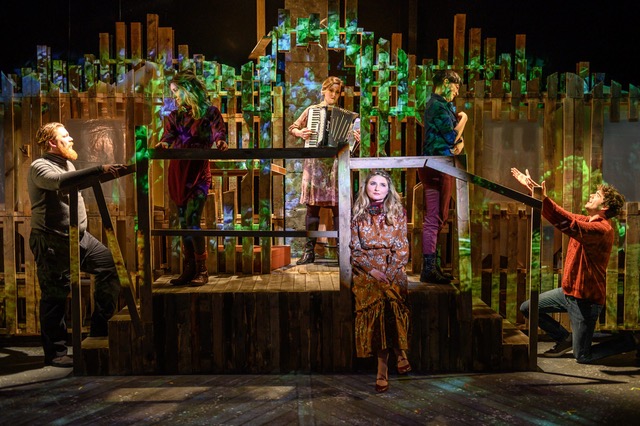While the Revolution of Dignity was happening in 2014, Lianna Makuch came across her grandmother’s journal, which she had kept while emigrating from Ukraine during World War Two. “The sentiments she was sharing in that journal really struck me because they were reflective of the sentiments that people were sharing from Ukraine during the revolution.”
Fully inspired and having just finished theatre school, Makuch wrote the first draft of Barvinok, which is set 2017, three years after the Russian invasion. She listened to more of her grandmother’s experiences, and explored what that meant for herself as part of the Ukrainian diaspora, but “I knew that if I wanted to develop this story further, I needed to go to Ukraine to understand the contemporary situation more.”
She ended up taking three trips, covering much of the country, including where her grandparents were born, lived and eventually fled. “We started asking around, and then, you know, the village mentality — this one woman went to another woman, they called people, and then this other woman started running down the street, yelling the names of all my family members. She came and threw her arms around me and knew exactly who I was.”
Makuch also met with veterans, survivors, diplomats and displaced people — in places that are now very hot conflict zones — and workshopped her script based on the experiences they shared. “Their perspective is something that we wouldn’t necessarily have been able to gain by workshopping the play in Canada in the same way.”
The perspective of the Ukrainian actors was important as well. “There’s a character in the play who is more pro-Russian than a lot of the other characters,” she says, “and the girl who was playing that character, it really affected her emotionally because she had a falling out with a very close friend who moved to Russia. So it was a really impactful experience for her to have to embody this person whom she had this falling out with.”
